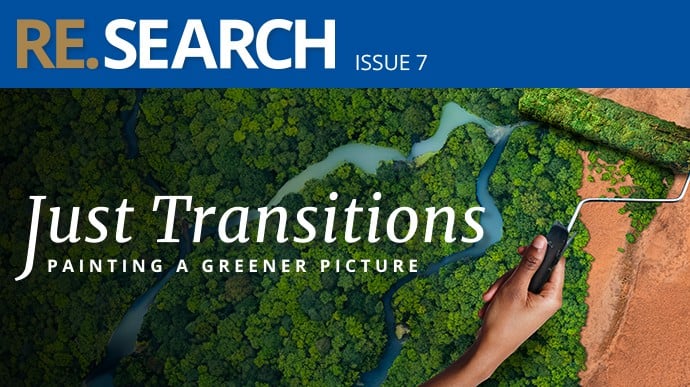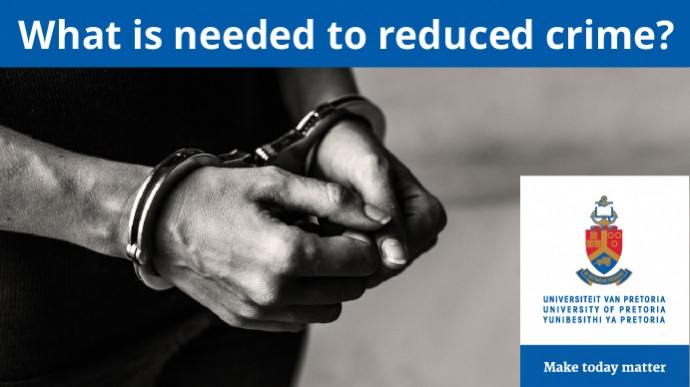 Story
Story
The articles in this edition showcase work from all nine of our faculties, and underscore our University’s slogan ‘Make today matter’. RE.SEARCH has been named South Africa's top corporate publication as the winner of the 2024 SA Publication's Forum Awards. It is a runner up and finalist in the Excellence category for Communication (runner up), Design and Photography (finalist) and the...
 Story
Story
RE.SEARCH 9 is our most novel edition yet. In it, we have featured research that encourages us to think afresh, and is doing so, we’ve highlighted new ways of looking at research. You can expect to read about research that has potential and promise for the future but which is still nascent or represents an educated guess. This edition also features a range of multimedia that you can immerse...
 Story
Story
A study by University of Pretoria (UP) researchers that investigated the effects of office gossip on black gay and lesbian South Africans has revealed the significant challenges faced by these individuals in South African workplaces.
 Story
Story
In a world in which there is an ever-encroaching digital footprint and high-tech solutions, it is vital that we reconnect with an outlook of compassion, care and communication. We do this through connection and connectivity. The theme of our latest issue, ‘Connect’, highlights how UP lives up to its motto, “Make Today Matter”, and demonstrates how our African research connections and...
 Story
Story
This edition explores the theme of ‘Just Transitions’ which is generally characterised by ideas of sustainability and the greening of the economy, and supported by the ideas of resistance, rethinking and restructuring society for a better and more equitable future. As one of the most impactful producers of research in South Africa, UP has several specialised research teams that are on the...
 Lecture
Lecture
Child activists have moved themselves to the front of the environmental protection agenda, and through this they have made the right to a clean, healthy, and sustainable environment a children’s rights issue. The arguments advanced by them (and by adults assisting them) is that they are more impacted by environmental harms and are also closer to (or part of) future generations. This lecture...
 Story
Story
Research by the University of Pretoria (UP) has demonstrated the importance of community policing forums in fighting crime in high-risk environments, such as in Johannesburg.
 Infographic
Infographic
Research done by experts at the University of Pretoria shows that community policing addresses one of South Africa’s most pressing societal concerns: the security and safety of lives and properties.
 Story
Story
The South African portion of the Progress in International Reading Literacy Study 2021 conducted by UP has found that 81% of South African Grade 4 learners are struggling to read for comprehension at age 10.
Copyright © University of Pretoria 2025. All rights reserved.
Get Social With Us
Download the UP Mobile App